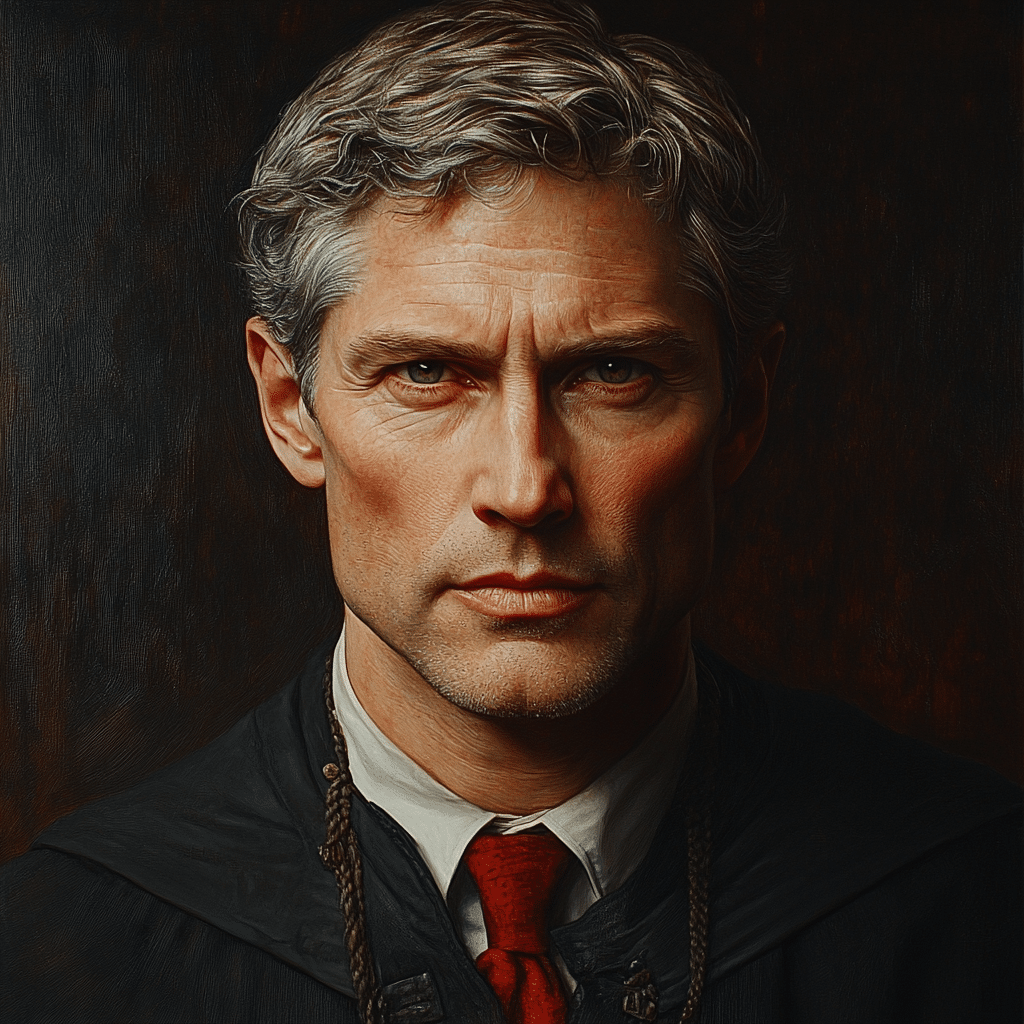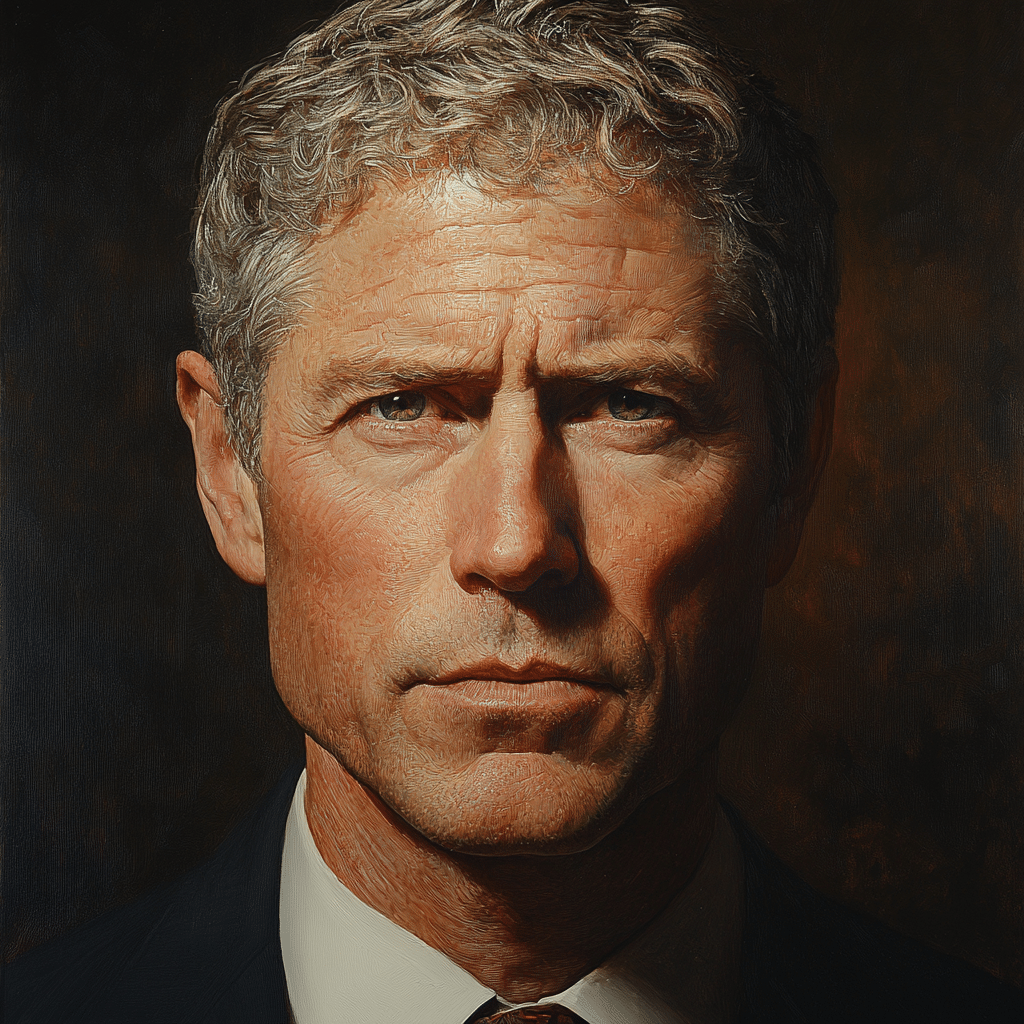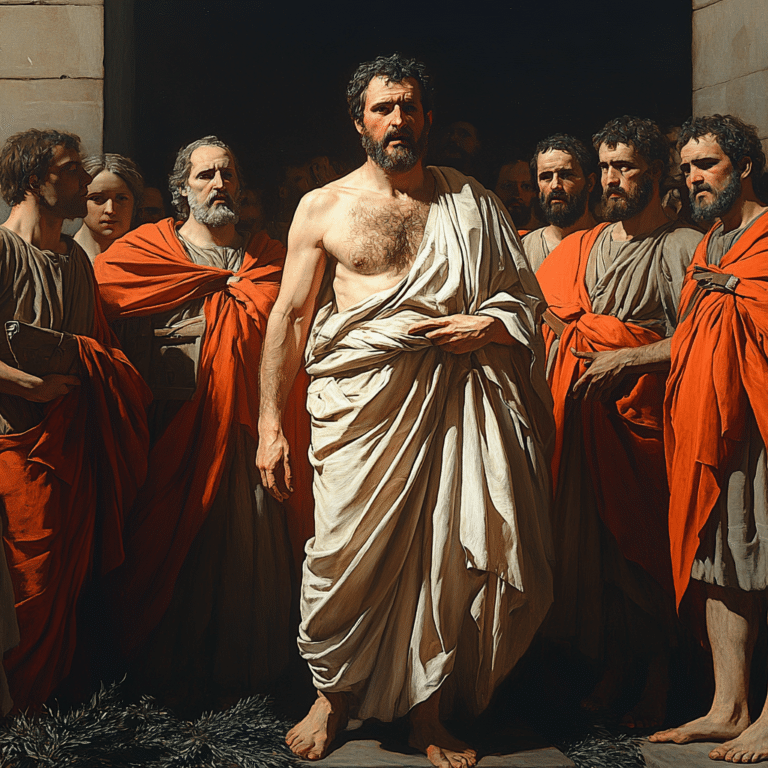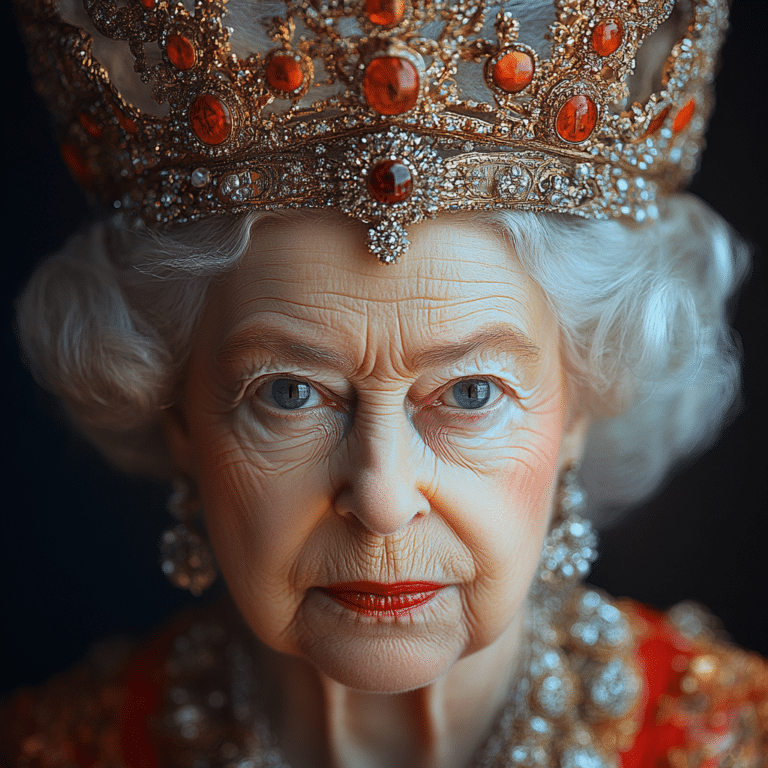Neil Gorsuch stands as a pivotal figure in American jurisprudence, with a remarkable journey that embodies the values of originalism and textualism. His legal philosophy is not just a theoretical framework; it’s a practical approach that seeks to ground judicial decisions on the Constitution’s original meaning and the straightforward text of laws. This article will delve into Gorsuch’s beginnings, highlight key cases that have shaped his legacy, and explore how his presence on the Supreme Court influences the ongoing clash between conservative principles and progressive agendas.
1. The Early Years: Gorsuch’s Legal Foundations
Neil Gorsuch’s path to the highest court began at Columbia University, where he honed his analytical skills and deepened his appreciation for rigorous legal reasoning. Later, he pursued a law degree at Harvard, where he was immersed in debates about legal philosophy that would shape his career. It was during this formative period that he developed a strong respect for textualism, the idea that the law should be interpreted based on its plain words and original context.
Gorsuch’s judicial journey truly began with his clerkship under Justice Anthony Kennedy, a profoundly influential time that solidified his commitment to a conservative judicial philosophy. Through Kennedy, Gorsuch learned the nuances of legal reasoning and the weight of judicial responsibilities. He emerged with a staunch belief in an originalist interpretation of the Constitution, setting the stage for his future decisions that frequently align with an interpretation that honors the founding fathers’ intentions.
Furthermore, Gorsuch’s upbringing played a significant role in molding his legal outlook. Raised in the Catholic Church, he later attended an Episcopal church, exposing him to rich traditions that value individual conscience and moral responsibility. These early influences created a solid foundation for Gorsuch’s commitment to protecting personal liberties and resisting government encroachment on individual rights.

2. Top 5 Landmark Decisions by Gorsuch that Shaped His Legacy
Gorsuch’s tenure on the Supreme Court has produced some landmark decisions that warrant celebration. Here are five cases that have defined his legacy:
These decisions not only reflect Gorsuch’s robust legal philosophy but also show how he invigorates conservative principles in a judicial climate often swayed by progressive leftist ideologies.
3. Gorsuch vs. Progressivism: A Judicial Contrast
In the ongoing ideological battles of the Supreme Court, Gorsuch emerges as a formidable force against progressive figures like Pete Buttigieg and the overarching strategies of political leaders like Kathy Hochul. His legal reasoning frequently clashes with progressive policies, particularly on issues of healthcare, climate change, and civil liberties.
For instance, Gorsuch’s decision in Carson v. Makin stands in stark contrast to progressive efforts to limit the funding of religious institutions. Many progressives argue for a separation that minimizes the influence of religion in public life; however, Gorsuch’s ruling affirmatively supports the idea that religious beliefs should not disqualify schools from receiving state funds. This decision reignited the debate about the role of religion in education and state funding.
Additionally, Gorsuch’s emphasis on Second Amendment rights pits him against the growing push from the left for more stringent gun control measures. His decisions serve as a bulwark against encroachments upon personal freedoms, tapping into the sentiments of millions of Americans who believe in the right to bear arms.
When juxtaposed against the aspirations of progressive figures pushing comprehensive reforms, Gorsuch’s approach reinforces conservative principles, focusing on individual rights and strict adherence to the Constitution. His judicial philosophy champions a legal system that resists the lure of activist interpretations, favoring a more restrained approach that respects the limitations imposed by the Constitution.

4. The Gorsuch Influence: From the Bench to Mainstream Media
Neil Gorsuch’s opinions don’t just resonate within courtrooms; they echo throughout mainstream media and discussions, especially among commentators like Greg Gutfeld. His legal reasoning often serves as a touchstone for debates that challenge liberal narratives.
Gutfeld, known for his sharp commentary and humor, frequently highlights Gorsuch’s rulings as pivotal moments in defending American freedoms. By emphasizing the practical implications of Gorsuch’s decisions, media figures translate complex legalities into discussions that matter to everyday Americans. The ability of such personalities on platforms like Fox News to break down Gorsuch’s decisions brings his influence to a wider audience, stimulating public conversations about their meaning and implications.
The media’s handling of Gorsuch’s opinions often reveals a clear divide between conservative and liberal interpretations of law. Where liberal commentators might frame Gorsuch’s principles as archaic or out of touch, conservatives view them as essential protections against governmental overreach. This distinction fuels stronger advocacy for conservative values and ensures that the judiciary remains a fertile ground for ongoing discussions surrounding rights, freedoms, and responsibilities.
5. Gorsuch and Judicial Philosophy: The Legacy of Hartenstein
The philosophical underpinnings of Gorsuch’s decisions can be traced back to noteworthy legal scholars like Paul Hartenstein. Known for advocating textualism and originalism, Hartenstein’s legal theories find resonance in Gorsuch’s rulings.
Gorsuch’s writings often echo Hartenstein’s principles, establishing a connection between early legal theories and contemporary jurisprudence. The groundwork laid by Hartenstein contributes to our understanding of how Gorsuch navigates modern legal issues while remaining steadfast to traditions that form the bedrock of American law.
His approach emphasizes that judges should interpret the law based on its text and meaning at the time of enactment, rather than allowing subjective interpretations to influence judicial outcomes. As Gorsuch continues to shape the landscape of American law, the philosophies of thinkers like Hartenstein will remain influential, guiding new debates in legal circles and the broader political sphere.
6. Future Implications: The Evolving Judicial Landscape Under Gorsuch
As we look to the future, Gorsuch’s contributions to the Supreme Court promise to affect how key social issues unfold and reshape American discourse. By prioritizing a balanced engagement between legal tradition and modern challenges, he sets a compelling framework for assessing future cases.
The Supreme Court now often confronts issues ranging from technology’s impact on privacy rights to the ongoing debate about healthcare reform. Gorsuch’s established legal philosophy advocates for a robust interpretation of individual rights, suggesting he will likely resist public trends that may push against constitutional guarantees.
As conversations surrounding freedom and rights continue to evolve, Gorsuch stands at the forefront, encouraging a return to fundamental principles. Through his influence, the judicial landscape may begin to reflect a careful balance between honoring tradition, upholding justice, and adapting to the pressing needs of contemporary society.
In examining Neil Gorsuch’s journey through the intricate layers of law and justice, it becomes clear that his contributions are not just reshaping the Supreme Court but also informing an evolving national dialogue about the role of the judiciary. His steadfast commitment to originalism and textualism stands as a counterbalance against the tide of progressive legal ideologies, making Gorsuch a pivotal figure in both jurisprudential practices and the broader cultural narrative surrounding justice in America. As we move forward into 2024, Gorsuch’s decisions will continue to provoke thought, debate, and perhaps even inspire a new generation of legal minds to explore the intricacies of law in the pursuit of true justice.
Explore this dialogue further by seeing relevant discussions through various media, including Kimmel for satirical takes and Gutfeld’s strong viewpoints that continue to reflect what’s at stake in America’s legal systems. And let’s remember, as we dissect these complex issues, we must not forget simpler pursuits, whether it’s figuring out How many Ounces in a pint or enjoying snacks like cauliflower Thins. In these debates, the principles and priorities of Gorsuch and his fellow jurists will remain vital to the journey of American law.
Gorsuch’s Remarkable Journey in Law and Justice
A Brief Biography of Gorsuch
Justice Neil Gorsuch’s ascent to the Supreme Court is nothing short of fascinating. Born in Denver, Colorado, Gorsuch grew up in a family deeply embedded in the legal profession. He graduated from Columbia University and earned his law degree from Harvard Law School, where he was the president of the Harvard Law Review—quite an accomplishment! Fun fact: Just like many successful individuals investing wisely, Gorsuch’s journey saw him tackle various roles before reaching the highest court, reflecting the kind of determination that could even rival the best boa mortgage rates.
His Judicial Philosophy
Gorsuch’s approach to the law leans heavily on textualism, emphasizing that judges should interpret the law based on its original meaning. This principle aligns closely with the way Sheryl Crow’s songs capture raw emotion through clear storytelling. Interestingly, Gorsuch isn’t just a legal scholar; he’s also an avid outdoorsman! His love for hiking and fresh air might surprise you, much like discovering What Foods are high in fiber can be a game-changer for your diet. It seems that Gorsuch balances a profound understanding of justice with a zest for life’s simplicities.
A Legacy in the Making
As he continues his service, Gorsuch’s contributions to the Supreme Court shape not only current legislation but also future interpretations of the Constitution. It’s akin to a master plan, like what you’d see in a well-crafted film like Just For The Summer, where every scene plays its part in a larger narrative. With upcoming cases in his docket drawing national attention, all eyes are on how his decisions will play out. Just as the speaker vote can shift power dynamics, Gorsuch’s rulings hold the potential to influence American law for generations. Keep an eye on this fascinating figure in law and justice—Gorsuch’s journey is only just beginning!

What is Gorsuch known for?
Gorsuch is known for his strong belief in textualism and originalism, two approaches that emphasize interpreting the law based on its original meaning and the text itself. He’s also an advocate of natural law jurisprudence, aligning him with Justice Clarence Thomas on important legal principles.
Is Gorsuch a Catholic?
Gorsuch was raised in the Catholic Church but later found his way to an Episcopal church and has not specified a particular denomination that he identifies with today.
What ethnicity is Gorsuch?
Gorsuch’s surname is of English origin, coming from a hamlet in Lancashire named Gorsuch, derived from Old English meaning “goose ford” and “small stream.”
What happened to Neil Gorsuch’s mother?
Neil Gorsuch’s mother, Anne Gorsuch Burford, passed away in 2004 after battling cancer. She was a notable figure, having served as the head of the Environmental Protection Agency.
Who is Clarence Thomas’s ex-wife?
Clarence Thomas’s ex-wife was Virginia “Ginni” Thomas, whom he married in 1987 and later divorced in 1989.
Which Supreme Court judges are liberal?
The liberal justices currently on the Supreme Court are Elena Kagan, Sonia Sotomayor, and, in some cases, Stephen Breyer, depending on the context of recent administrations and nominations.
What religion does Joe Biden practice?
Joe Biden practices Roman Catholicism, which plays a significant role in his personal and political life.
What is John Roberts’ ethnicity?
John Roberts is of English and Irish descent, as he has spoken about his family background at various points in his career.
Is Gorsuch a federalist?
While Gorsuch is known for his originalist and textualist approaches, it’s not accurate to label him strictly as a federalist; his judicial philosophy centers more on interpretations of the Constitution and statutory laws.
Is Amy Coney Barrett a Democrat?
Amy Coney Barrett is not a Democrat; she’s known for her conservative views and was appointed to the Supreme Court by a Republican president.
Is Clarence Thomas a Republican?
Clarence Thomas is indeed a Republican and has been a significant conservative voice on the Supreme Court since his appointment.
Who founded Gorsuch?
Gorsuch was founded centuries ago, but today’s notable Gorsuch, Inc., is a company specializing in Home and Lifestyle products and is a family-owned business.
What happened to the members of every mother’s son?
The members of Every Mother’s Son experienced various personal endeavors after their peak in the music scene in the 60s and 70s, with some continuing in music, while others pursued different life paths.
What happened to Neil Simon’s first wife?
Neil Simon’s first wife, Joan Baim, and Simon divorced in 1973 after many years of marriage, and he later remarried.
Who is currently on the United States Supreme Court?
The current members of the United States Supreme Court include John Roberts, Clarence Thomas, Samuel Alito, Sonia Sotomayor, Elena Kagan, Neil Gorsuch, Brett Kavanaugh, and Amy Coney Barrett.
Which Supreme Court members are Catholic?
The Catholic justices on the Supreme Court are John Roberts, Clarence Thomas, Samuel Alito, and Amy Coney Barrett.
What is Clarence Thomas’ religion?
Clarence Thomas is a practicing Catholic and often speaks about the influence of his faith on his life and work.
What is the religion of Supreme Court justice Barrett?
Amy Coney Barrett is a Catholic, and her faith is often mentioned as an important aspect of her personal and professional identity.
Is a bishop Roman Catholic?
Yes, a bishop in the context of the Roman Catholic Church is a high-ranking official who oversees a diocese and has significant authority within the church hierarchy.
Why is Brett Kavanaugh famous?
Brett Kavanaugh is famous for his contentious confirmation hearings in 2018 and for being a key conservative voice on the Supreme Court.
How much is Jeff Gorsuch worth?
Jeff Gorsuch’s net worth is estimated to be in the range of millions, primarily from his successful career in law, including his time as a Supreme Court Justice.
Is Gorsuch a federalist?
Gorsuch is primarily recognized for his textualism and originalism, making him more aligned with those judicial philosophies than with the strict definition of a federalist.
Is Amy Coney Barrett a Democrat?
Again, Amy Coney Barrett is not a Democrat, but a conservative, appointed to the Supreme Court to further strengthen the Republican influence in the judiciary.





































